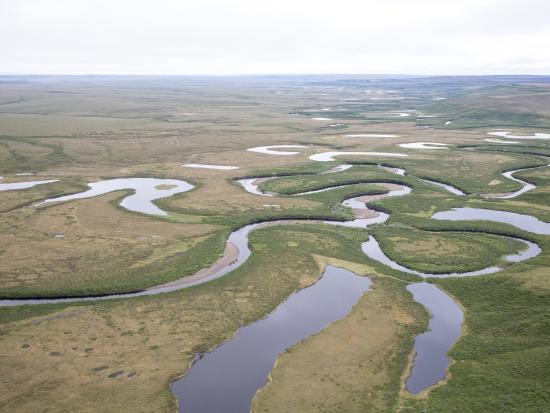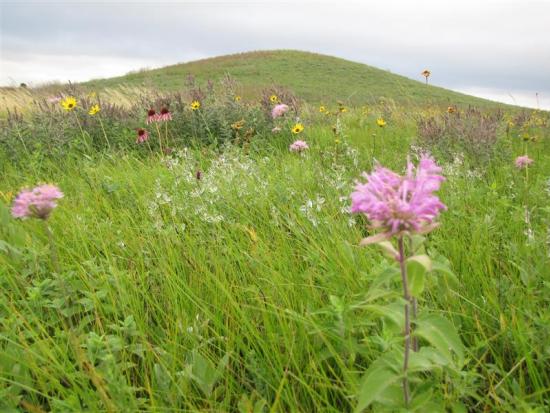Secretary Jewell, Tribal Leaders Mark Enactment of Four Additional Water Rights Settlements for Indian Country
You are viewing ARCHIVED content published online before January 20, 2025. Please note that this content is NOT UPDATED, and links may not work. Additionally, any previously issued diversity, equity, inclusion or gender-related guidance on this webpage should be considered rescinded. For current information, visit https://www.doi.gov/news/newsroom
Administration Efforts on 12 Indian Water Rights Settlements Total $3 Billion
Date: January 13, 2017
Contact: Interior_Press@ios.doi.gov
WASHINGTON – As part of President Obama’s historic commitment to empowering tribal nations, U.S. Secretary of the Interior Sally Jewell and Interior Deputy Secretary Michael L. Connor today joined tribal leaders to celebrate four landmark water rights settlements that will resolve contention among tribes and neighboring communities over water rights and improve the quality of life for tribal communities and their non-Indian neighbors.
The settlements, negotiated during the past eight years, were ratified and approved in December 2016 under the Water Infrastructure Improvements for the Nation Act. The legislation authorized $422 million in funding to the Blackfeet Tribe of Montana to provide clean drinking water and other water-related infrastructure projects that will improve the health, safety and welfare of the Tribe. More than $28 million was authorized for the Pechanga Band of Luiseño Mission Indians, located in southern California, enabling them to gain secure water supplies. The legislation secured for the Choctaw and Chickasaw Nations of Oklahoma the right to use and benefit from water resources within their historic treaty territories without any federal funding. Finally, the five San Luis Rey Bands of southern California settlement legislation finalized and effectuated a settlement originally enacted in 1988 and did not require additional funding.
“With these four agreements, the Obama Administration has completed a dozen landmark Indian water rights settlements – more than any previous administration – that put an end to complex and litigious water rights controversies for 20 tribes in New Mexico, Arizona, Montana, California and Nevada,” Secretary Jewell said. “Today’s celebration marks not only these incredible accomplishments, but the start of a new journey working together to implement these hard-won settlements.”
The total $3 billion in funding authorized for Indian water rights settlements during the current Administration represents a major commitment to help provide safe drinking water and support economic development activities, including hydroelectric power, agriculture improvement and water marketing.
“The settlements, which have been a top priority of this Administration, represent the culmination of generations of hard work and dedication by the tribes and their neighbors,” said Deputy Secretary Connor. “Each of the settlements had widespread local and bipartisan congressional support, and implementing the agreements will bring much needed investments to Indian country, help stabilize water supplies in various communities, and improve water resources management for all concerned, including non-Indian communities.”
The Blackfeet settlement reflects decades of struggle and commitment by the Tribe – and negotiations with the State of Montana – to quantify and secure a tribal water right of more than 800,000 acre-feet while protecting the rights of existing water users. The settlement includes funding for the Tribe to develop and manage its water resources.
The Pechanga settlement, which will partially settle litigation filed by the United States in 1951, was achieved only after a long and arduous struggle. The Pechanga Band negotiated the settlement with its neighbors, the Rancho California Water District, Eastern Municipal Water District and the Metropolitan Water District. The Band has tirelessly pursued the quantification of its water rights and engaged its neighbors in a multi-year process of building mutual trust and understanding. The resulting settlement benefits all of the parties, securing adequate water supplies for tribal members and encouraging cooperative water resources management among all parties.
The Choctaw and Chickasaw settlement in Oklahoma – the first Indian water settlement to be finalized in that state – reflects a unique and collaborative approach to water management in the Nations’ historic treaty territories. It will advance a collaborative approach to water management and help achieve water security for the State of Oklahoma and the Choctaw and Chickasaw Nations. The settlement includes important protections for the Nations’ future and existing water rights, conserves water resources and provides for cooperation in the regulation of water use.
The San Luis Rey settlement allows full implementation of amendments to the 1988 San Luis Rey Indian Water Rights Settlement Act that benefits the La Jolla, Rincon, San Pasqual, Pauma and Pala Bands of Mission Indians in southern California. The agreement allows the five Bands and the local parties to realize the full benefits of the 1988 Act, including: expressly recognizing the continuing federal reserved water rights of the Bands; addressing the fair allocation of water among the Bands; protecting the water rights of allottees; waiving all past claims the Bands may have against the U.S. regarding water rights and breach of trust relating to water rights; and allowing the Bands to access a trust fund established in 1988 that has now grown to approximately $60 million.
“These settlements recognize tribal stakeholders’ reserved rights to one of their most precious assets and offer the most efficient way of providing vital water supplies to both tribal and non-Indian communities,” said Interior Principal Deputy Assistant Secretary – Indian Affairs Lawrence S. Roberts. “Under the Obama Administration, Indian water rights settlements are a visible example of the Federal trust responsibility to federally recognized tribes and of Federal policies that promote tribal sovereignty, self-determination and economic self-sufficiency. I congratulate all of the parties to these settlements for their leadership in achieving these settlements.”
The eight other settlements enacted during the Obama Administration were:
- Navajo-Gallup Water Supply Project and Navajo Nation Water Rights Settlement
- Shoshone-Paiute Tribes of the Duck Valley Reservation Water Rights Settlement
- Crow Tribe Water Rights Settlement
- White Mountain Apache Tribe Water Rights Settlement
- Aamodt Litigation Settlement
- Taos Pueblo Indian Water Rights Settlement
- Bill Williams River Water Rights Settlement (Hualapai Tribe)
- Pyramid Lake Paiute Tribe – Fish Springs Ranch Settlement
Thoughtful Indian water rights settlements benefit taxpayers when balanced against the potential consequences and costs of continued litigation over Indian water rights claims. Settlements also offer the most efficient way to provide much-needed water supplies to tribal communities in fulfillment of basic Federal trust responsibility to American Indians and Federal policy promoting tribal sovereignty, self-determination and economic self- sufficiency.
Settlements are especially important given the need for water on many Indian reservations and throughout the West and the uncertainty regarding its availability due to drought, climate change and increasing demands for this scarce resource. Settlements resolve long-standing claims to water; provide reliability with respect to supplies; facilitate the development of much-needed infrastructure; improve environmental and health conditions on reservations; and promote collaboration between Tribes, states and local communities.
- Press Release
- Press Release
- Press Release




